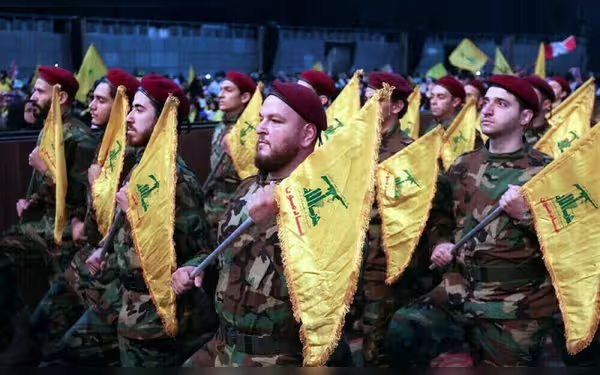Saturday, November 16, 2024 05:50 PM
Hezbollah Targets Israel in Retaliation for Civilian Attacks
- Hezbollah launches missile attacks on Israeli sites.
- Israel claims airstrike killed Hezbollah leader Nasrallah.
- Escalating conflict raises humanitarian concerns for civilians.
 Image Credits: brecorder
Image Credits: brecorderHezbollah retaliates against Israel with missile strikes amid escalating tensions and humanitarian concerns.
In recent developments in the Middle East, tensions have escalated significantly between Hezbollah and Israel. On Saturday, Hezbollah, the Lebanese militant group, announced that it had launched missile attacks targeting Israeli sites, including the northern city of Rosh Pina. This action was described as a direct response to what Hezbollah termed as "Israeli attacks on Lebanese cities, villages, and civilians." The ongoing conflict has raised concerns about the safety of civilians in both Lebanon and Israel, as the situation continues to deteriorate.
Earlier on the same day, Israel claimed that it had conducted an airstrike in Beirut’s southern suburbs, resulting in the death of Hezbollah leader Sayyed Hassan Nasrallah. Nasrallah has been at the helm of Hezbollah for 32 years, and his potential death could have significant implications for the group and the broader region. As of now, Hezbollah has not confirmed or denied the reports regarding Nasrallah's status, leaving many to speculate about the future of the organization.
The conflict between Hezbollah and Israel is not new; it has deep historical roots and has often resulted in violence and instability in the region. The recent escalation highlights the fragile nature of peace in the area and the potential for further military confrontations. Civilians on both sides are caught in the crossfire, raising urgent humanitarian concerns.
As the situation unfolds, it is crucial for the international community to pay close attention. The potential for a wider conflict looms large, and diplomatic efforts are needed to prevent further escalation. Understanding the complexities of this conflict is essential for anyone interested in Middle Eastern politics. The lives of countless individuals depend on the decisions made by leaders on both sides, and the hope for peace remains a distant yet vital goal.













